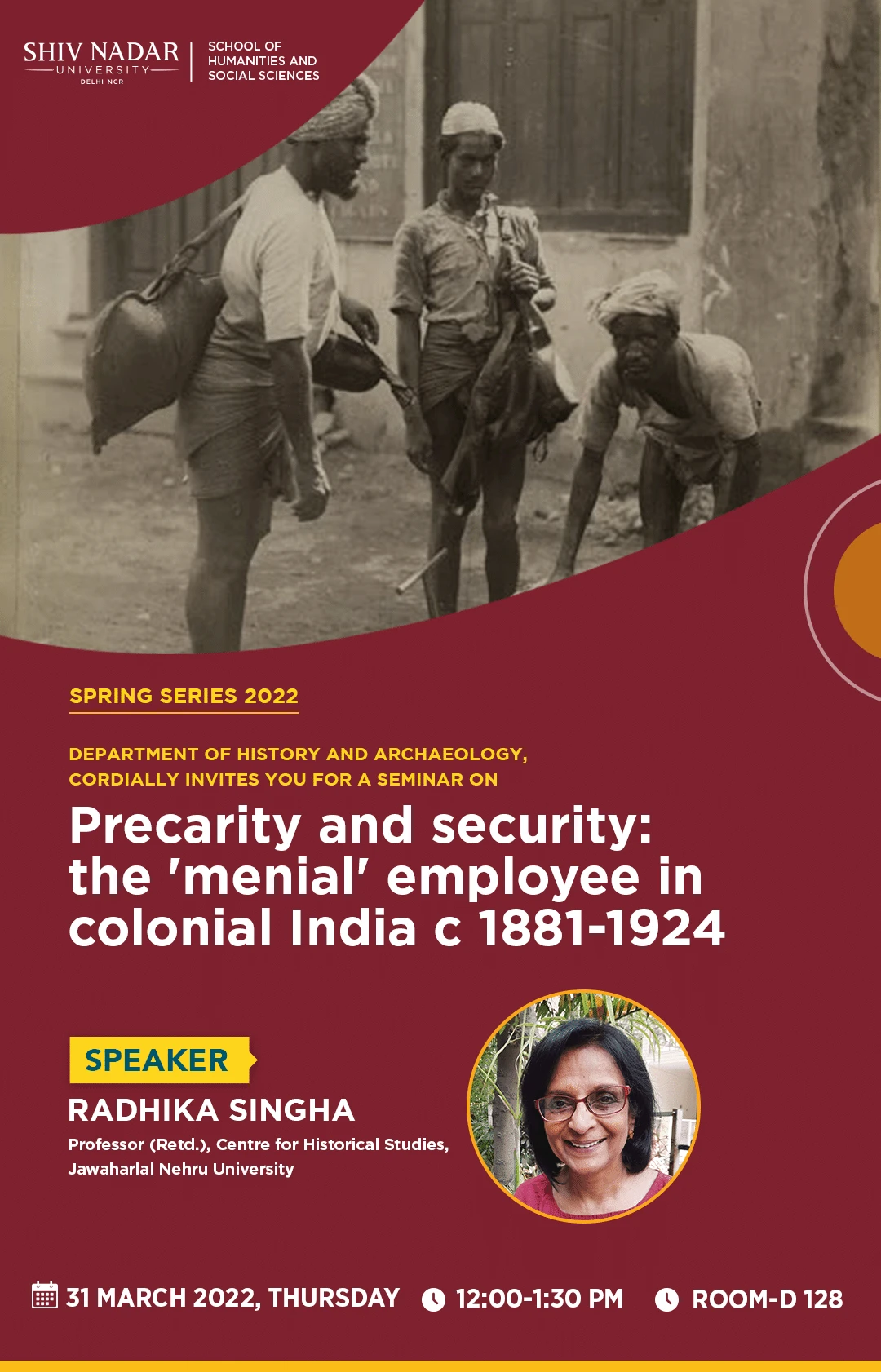Department of History and Archaeology Organizing a Seminar on Precarity and Security: The 'Menial' Employee in Colonial India c.1881- 1924
In colonial India, menial was not just a descriptive term for servants dependent on one particular household, but an institutional designation, for those on the lowest rung of civilian and military employment, who undertook a range of specific duties, some of which resembled house-work and others not. Official advertisements are still issued for the post of 'Full time menial/Peon', and thousands apply. Why did the designation ‘menial’ find such a foothold in the realm of official employment? What were the economies and ideologies of rule it sustained.?
In contrast to the word ‘coolie’, used for ‘unskilled’ manual work, ‘menial’ applied to those hired for specific services, some of which, for instance cleaning latrines, supplying water, or carrying palanquins, were described as caste- based ‘trades’. Under colonial rule a sarkari naukari was cast as the epitome of secure employment. In fact, a graded precarity was crucial to the rituals of authority and the economies which structured government service. Menials were simultaneously disposable and indispensable, and the boundaries between the one situation and the other were constantly tested. This talk suggests that the escalation of imperial rivalry in the late nineteenth century and the authority which bacteriology and parasitology lent to hygienic prescriptions, tilted the balance towards indispensability. The talk draws substantially on my latest book, The Coolie's Great War: Indian Labour in a Global Conflict 1914-21 to discuss the menial or attached follower ranks of the Indian Army, but it also includes a tentative exploration of menial service in civil departments, municipalities and cantonments.

Share this: